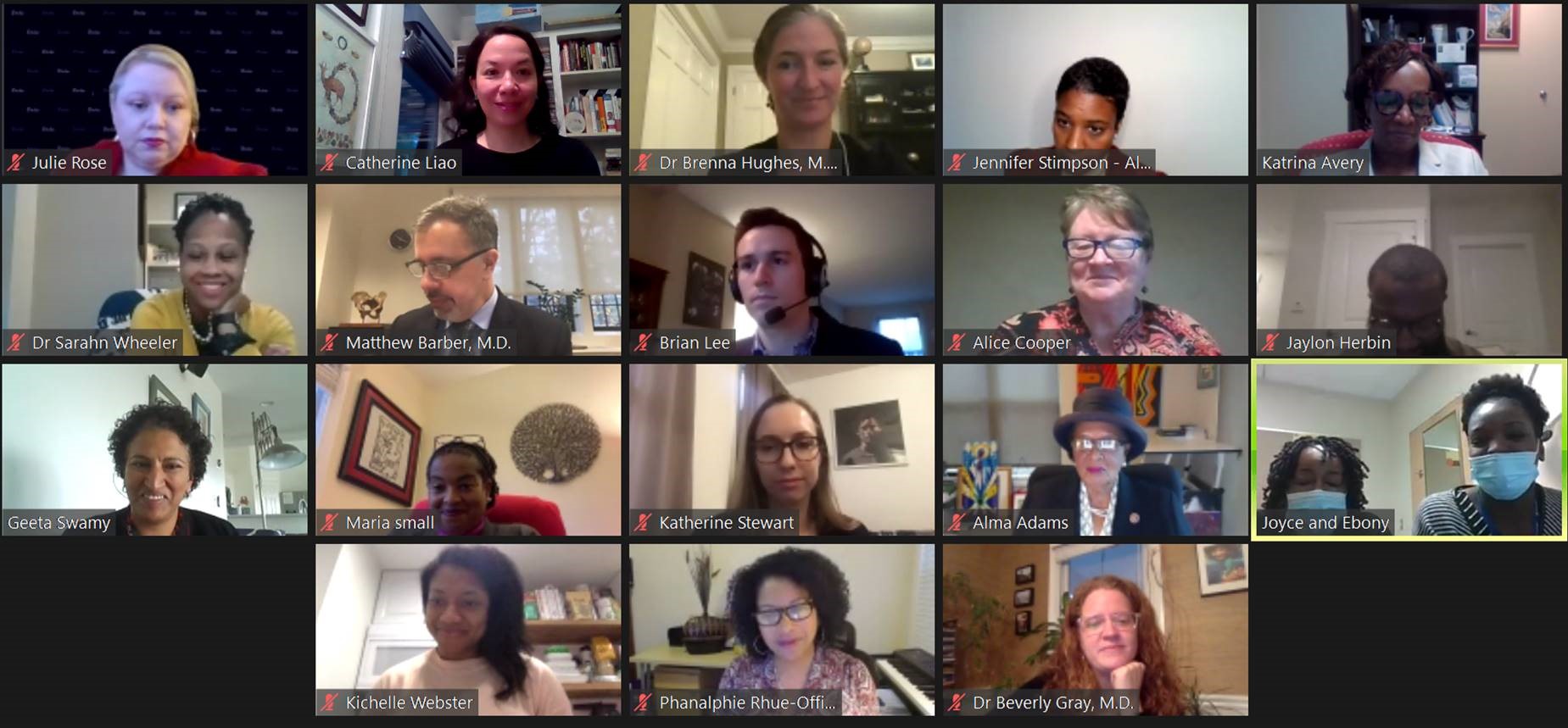
The Hill is alive
And calm? It’s 2020
Check your bingo card
Federal Updates
And we thought October was interesting
We’re now over a week post-election, and while it doesn’t feel like the most recent campaign cycle is completely behind us – particularly with Senate runoffs looming in Georgia – the policy picture for 2021 is coming into clearer focus.
President-elect Joe Biden and Vice President-elect Kamala Harris, projected winners of the presidential race, have taken steps to begin their transition this week, launching their official website and announcing a COVID-19 taskforce to inform their Administration’s response to the public health emergency. The group, co-chaired by former Surgeon General Vivek Murthy, MD, former Food and Drug Administration (FDA) Commissioner David Kessler, MD and Marcella Nunez-Smith, MD, a leading health disparity expert from Yale University, will help guide the implementation of Biden’s COVID-19 plan once he takes office in January.
Transition efforts have been complicated by Trump campaign legal challenges and a post-election audit ordered by the Georgia Secretary of State, but at this time all states are on track to certify their election results ahead of the Electoral College meeting on December 14 to cast their ballots to officially finalize the presidential race.
Vote counts in North Carolina are expected to be completed today as boards of elections meet in all 100 counties to collect ballots postmarked by November 3 and received by November 12. Democrat Cal Cunningham conceded this week to incumbent Senator Thom Tillis (R) in a relatively close contest that will see Tillis elected to his second six-year term. President Trump (R) has also been declared the winner of North Carolina’s 15 electoral votes.
The Senate returned to session this week in preparation for the lame duck session, internal leadership elections, and to hold orientation for newly elected members. The House is scheduled to return the week of November 16.
The Supreme Court also heard arguments on November 10 on a case challenging the legality of the Affordable Care Act. While a formal decision from the Court is not expected until the spring, legal experts believe the Justices signaled a willingness to keep much of the law intact even if the now toothless individual mandate provision is struck down.
If it walks like a duck: FY 2021 spending and COVID relief take priority for year-end session
Senate releases appropriations bills to start FY 2021 funding negotiations
The Senate Appropriations Committee on Tuesday released drafts of all 12 annual spending bills for 2021, setting up negotiations with the House for a deal ahead of the December 11 expiration of the current continuing resolution (CR) that’s kept the government funded since late September. The House previously passed 11 of its versions of the 12 appropriations bills in August.
One of the Senate-released bills, which would provide funding for the Departments of Labor, Health and Human Services, and Education, proposes a $2 billion funding increase for the National Institutes of Health (NIH). The Ad Hoc Group for Medical Research, a coalition that includes academic and research organizations, issued a statement expressing support for this increase and urged leaders to act without any further delay to complete both the FY 2021 appropriations process and emergency funding for NIH.
Separate bills would provide relatively flat funding compared to FY 2020 for key priorities in the Department of Defense Medical Research Program and the Department of Veterans’ Affairs Medical Research Program, respectively.
House and Senate leaders are hoping to reach a longer term agreement on FY 2021 spending to avoid a potential cycle of short-term CRs for much of next year. Under current law, this is the last fiscal year subject to statutory discretionary spending caps, which may complicate efforts to provide for more significant funding increases.
Duke Health Government Relations will continue to advocate for FY 2021 priorities until a final deal is reached.
House and Senate leaders signal interest on (finally) reaching deal on next round of COVID-19 relief
It’s going to happen. This year. Maybe. Senate Majority Leader Mitch McConnell (R-KY) has indicated interest in reaching a deal on the next round of COVID-19 relief and stimulus during the lame duck session, but the same obstacles that plagued negotiations before the election remain. Notably, House Speaker Nancy Pelosi (D-CA) and Treasury Secretary Steven Mnuchin were unable to find a compromise despite the Trump Administration showing willingness to move closer to the spending targets preferred by House Democrats. Differences on the scope of a final legislative deal will have to be bridged on issues ranging from testing and funding for state and local governments to liability protections and assistance for businesses.
McConnell has maintained his preference for a smaller agreement in the range of $500 billion and is reportedly in talks with the White House. Meanwhile, Speaker Pelosi and Senate Minority Leader Chuck Schumer (D-NY) said this week that their opening offer for the new rounds of talks would be closer to the $3.4 trillion HEROES Act passed by the House in May. President Trump may be the biggest wild card at this stage, as it is unknown whether he is still willing to reach a bigger compromise. Negotiations are expected to pick up more formally when the House returns next week.
VA clarifies national practice rule for nurses and other health care professionals
The Department of Veterans Affairs (VA) has released an interim final rule clarifying that VA nurses and other health care professionals can deliver health care services in a state other than their state of licensure, registration, certification, or other requirement. The rule also confirms that the agency plans to establish national standards of practice for VA health care professionals. The interim rule became effective November 12, and the VA will accept comments for 60 days.


Duke OB/GYN meets with Rep. Alma Adams to discuss Black Maternal Health research and clinical work
This week, leadership and faculty from Duke OB/GYN met virtually with the office of Rep. Alma Adams (D-NC-12) to discuss their clinical work and research to address Black maternal health and to improve health outcomes for pregnant women. Rep. Adams is co-chair and co-founder of the Black Maternal Health Caucus, along with Rep. Lauren Underwood (D-IL-14). Reps. Adams and Underwood also introduced the Black Maternal Health Momnibus Act of 2020 in the House to address preventable maternal mortality and severe maternal morbidity in the United States and close disparities in maternal health outcomes. Current California Democratic Senator and Vice President-elect Kamala Harris has led the companion effort in the Senate.
Black women are three to four times more likely to die from pregnancy-related complications and twice as likely to lose an infant to premature death. Complex reasons contribute to these outcomes, but Duke Health experts discussed their ongoing commitment to tackle persistent racial inequities in maternal outcomes.
NIH Seeking Feedback on NIH-Wide Strategic Plan for COVID-19 Research
On October 28, NIH issued a “Request for Information (RFI): Inviting Comments and Suggestions on the NIH-Wide Strategic Plan for COVID-19 Research.” The plan was released in July, and NIH is looking for feedback on the next iteration of the plan by December 7.
In his blog “Open Mike,” NIH's Deputy Director for Extramural Research Mike Lauer wrote, “If you have noted significant research gaps or barriers in the original Plan, let us know. Or perhaps you can share new resources that NIH can leverage to advance one of the plan’s priorities. Maybe a new scientific technique has emerged that could revolutionize COVID-19 research, well send the suggestion our way. We look forward to receiving your thoughts on ways we can continue tackling coronavirus disease going forward.”
Duke Health Government Relations would be pleased to receive a copy of any comments you are submitting to help inform future government relations activities. If you would like to share your comments, please send them to govrelations@dm.duke.edu.
